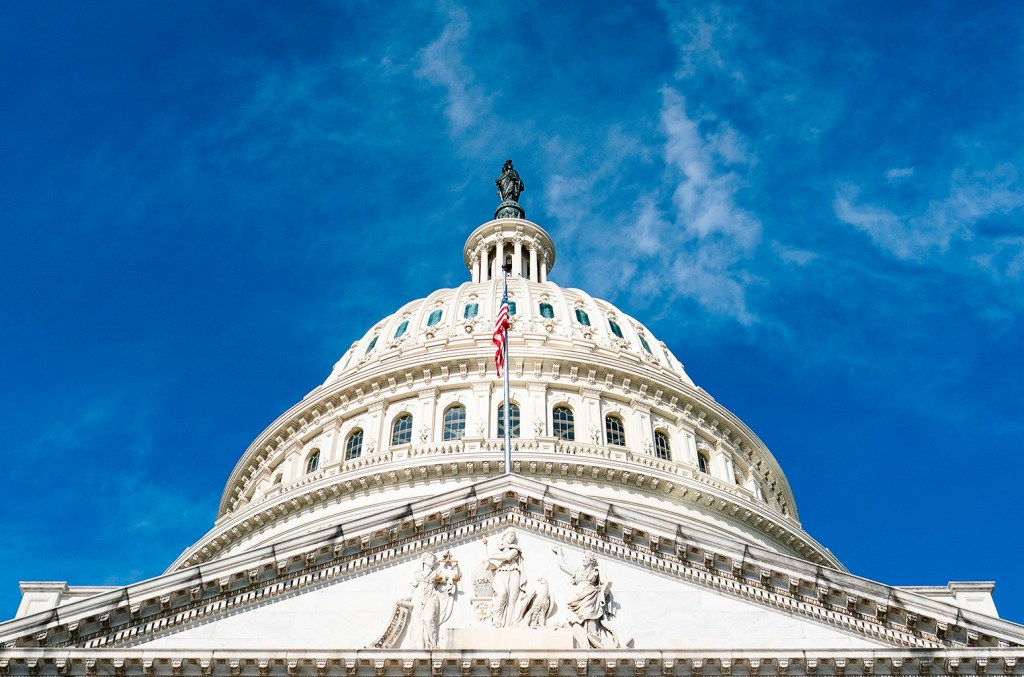A bipartisan group of U.S. senators introduced the highly anticipated NO FAKES Act on Wednesday (July 31), which aims to protect artists and others from AI deepfakes and other nonconsensual replicas of their voices, images and likenesses.
If passed, the legislation would create federal intellectual property protections for the so-called right of publicity for the first time, which restricts how someone’s name, image, likeness and voice can be used without consent. Currently, such rights are only protected at the state level, leading to a patchwork of different rules across the country.
Unlike many existing state-law systems, the federal right that the NO FAKES Act would create would not expire at death and could be controlled by a person’s heirs for 70 years after their passing. To balance personal publicity rights and the First Amendment right to free speech, the NO FAKES Act also includes specific carveouts for replicas used in news coverage, parody, historical works or criticism.
Non-consensual AI deepfakes are of great concern to the music business, given so many of its top-billing talent have already been exploited in this way. Taylor Swift, for example, was the subject of a number of sexually-explicit AI deepfakes of her body; the late Tupac Shakur‘s voice was recently deepfaked by fellow rapper Drake in his Kendrick Lamar diss track “Taylor Made Freestyle,” which was posted, and then deleted, on social media; and Drake and The Weeknd had their own voices cloned by AI without their permission in the TikTok viral track “Heart On My Sleeve.”
The NO FAKES Act was first released as a draft bill by the same group of lawmakers — Senators Chris Coons (D-DE), Marsha Blackburn (R-TN), Amy Klobuchar (D-MN) and Thom Tillis (D-NC) — last October, and its formal introduction to the U.S. Senate continues to build on the same principles also laid out in the No AI FRAUD Act, a similar bill which was introduced to the U.S. House of Representatives earlier this year.
While the music industry has always been overwhelmingly supportive of the creation of a federal right of publicity, there were previously some skeptics in the film/tv industry, which posed a threat to the passage of bills like the NO FAKES Act. Now, the Motion Picture Association (MPA) has come out in its support of the bill, a sign that the film/tv establishment may have become more aligned with the music industry in its fight for a federal publicity right.
“The Motion Picture Association thanks Senators Coons, Blackburn, Klobuchar, and Tillis for their work on the NO FAKES Act,” says Charles Rivkin, Chairman and CEO of MPA. “We support protecting performers from generative AI abuse – and this bill thoughtfully establishes federal protections against harmful uses of digital replicas, while respecting First Amendment rights and creative freedoms. We particularly appreciate the sponsors’ inclusion of safeguards intended to prevent the chilling of constitutionally protected speech such as biopics, docudramas, parody and satire – which will be necessary for any new law to be durable. The MPA looks forward to working closely with the bill’s sponsors as the NO FAKES Act makes its way into law.”
Earlier this year, proponents for strengthened publicity rights laws celebrated a win on the state level in their fight to regulate AI deepfakes with the passage of the ELVIS Act in Tennessee. The landmark law greatly expanded protections for artists and others in the state, and explicitly protected voices for the first time.
Though it was celebrated by a who’s who of the music business — from the Recording Academy, Recording Industry Association of America (RIAA), Human Artistry Campaign, NMPA and more — the act also drew a few skeptics, like Professor Jennifer Rothman of University of Pennsylvania law school, who raised concerns that the law could have been an “overreaction” that could potentially open up tribute bands, interpolations, or sharing photos that a celebrity didn’t authorize to lawsuits.
“The Human Artistry Campaign applauds Senators Coons, Blackburn, Klobuchar and Tillis for crafting strong legislation establishing a fundamental right putting every American in control of their own voices and faces against a new onslaught of highly realistic voice clones and deepfakes,” Dr. Moiya McTier, senior advisor of the Human Artistry Campaign — a global initiative for responsible AI use, supported by 185 organizations in the music business and beyond — says of the bill. “The NO FAKES Act will help protect people, culture and art — with clear protections and exceptions for the public interest and free speech. We urge the full Senate to prioritize and pass this vital, bipartisan legislation. The abusive deepfake ecosystem online destroys more lives and generates more victims every day — Americans need these protections now.”
The introduction of the bill is also celebrated by American Federation of Musicians (AFM), ASCAP, Artist Rights Alliance (ARA), American Association of Independent Music (A2IM), Association of American Publishers, Black Music Action Coalition (BMAC), BMI, Fan Alliance, The Azoff Company co-president Susan Genco, Nashville Songwriters Association International (NSAI), National Association of Voice Actors (NAVA), National Independent Talent Organization, National Music Publishers’ Association (NMPA), Organización de Voces Unidas (OVU), Production Music Association, Recording Academy, Recording Industry Association of America (RIAA), SAG-AFTRA, SESAC Music Group, Songwriters of North America (SoNA), SoundExchange, United Talent Agency (UTA) and WME.
